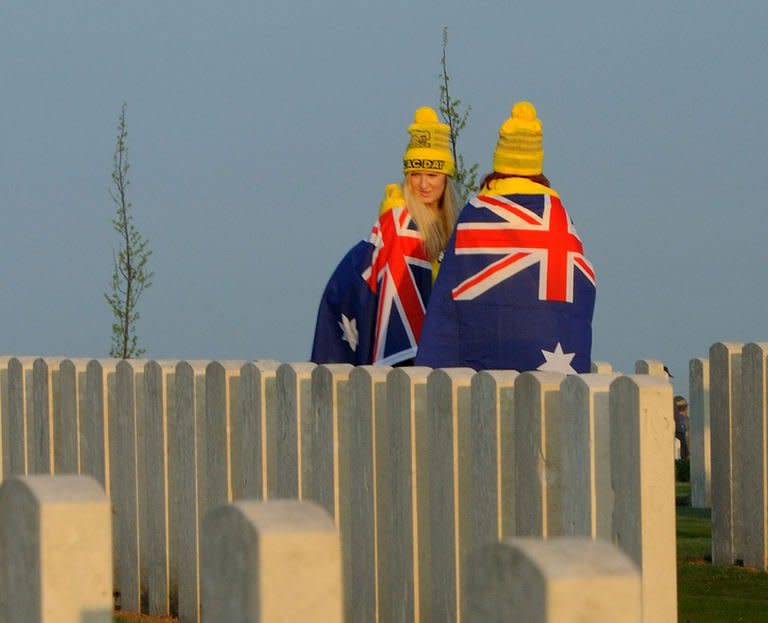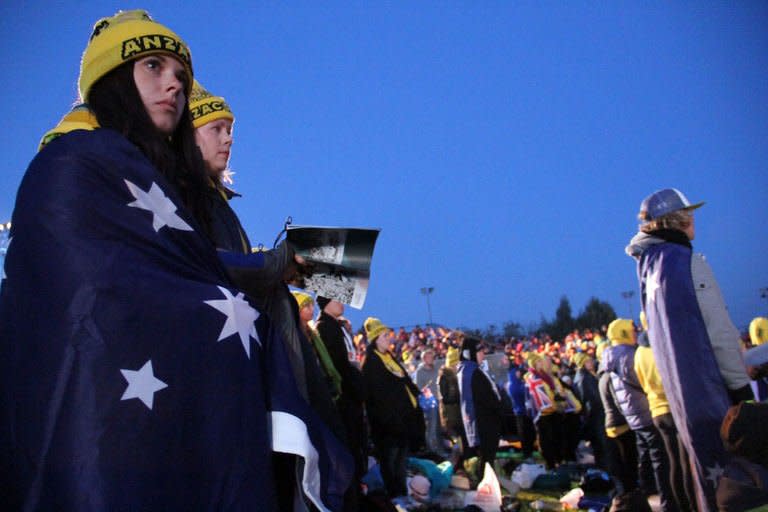Thousands remember war dead on ANZAC Day
Tens of thousands of Australians and New Zealanders turned out Thursday to honour their war dead, with moving tributes to fallen mates and calls not to forget those injured in conflict. The commemorations are held every year on the April 25 anniversary of the ill-fated 1915 landing of the Australian and New Zealand Army Corps (ANZAC) at Gallipoli in modern-day Turkey during World War I. More than 10,000 New Zealand and Australian servicemen died in the failed eight-month campaign, and Gallipoli has become a defining symbol of courage and comradeship for the two nations. Sombre dawn services were held, before veterans and their families paraded to remember those who fought, with at least 20,000 turning out in Sydney, 30,000 in Canberra and many more across the country and in Auckland and Wellington. With troops still being killed and injured in Afghanistan, the services sent a clear message on the need to look after the wounded and their families. In a commemorative address in Canberra, Navy senior chaplain Barry Yesberg said those who survived war and returned home often had physical, emotional, mental, or moral wounds which must not be ignored. "Families have to live with these veterans and their wounds and should be honoured as we do those who go to war," he said. In a moving tribute, Victoria Cross recipient Corporal Ben Roberts-Smith recited the words of family members of some of his fallen comrades. "His death left a hole in my heart but his spirit has given me the motivation to push myself further than ever before," wrote Keegan Locke, 17, the son of Sergeant Matthew Locke who was killed in Afghanistan in 2007. Australian Prime Minister Julia Gillard attended a service in the Queensland garrison city of Townsville and vowed Afghan veterans would be looked after. "As we go through the next few years I think we will get a sense of the full dimensions of the support that are needed," she said. Although no allied WWI soldiers survive -- the last combat veteran Claude Choules died in 2011 aged 110 -- Gillard said the services were more popular than ever, driven by young children keen to learn about the sacrifices made. "The thing I always look for is the number of children, and there are just more and more and more," she said. "It's actually the children who are driving the next level of engagement. I think that means that for all of time we will commemorate ANZAC Day and think about who we are as Australians on that day." US President Barack Obama and Secretary of State John Kerry sent their best wishes, saying Washington was honoured to have such strong allies. "We celebrate the bond that Australians and New Zealanders have gained through their shared sacrifice and reflect on the virtues of hope, courage, and freedom that unite our three nations," Kerry said in a statement. "The United States is honoured to have such strong partners in promoting peace and prosperity in the world." In Wellington, New Zealand Governor General Jerry Mateparae said the Gallipoli campaign created "an indelible bond" between New Zealanders and Australians. "In the thick of battle, when all was at stake, it was the Australians we trusted before anyone else," he said. "In the 98 years that have passed, we have served alongside each other in conflict zones around the world, and we have been there when the other has been afflicted by tragedies and natural disasters."





